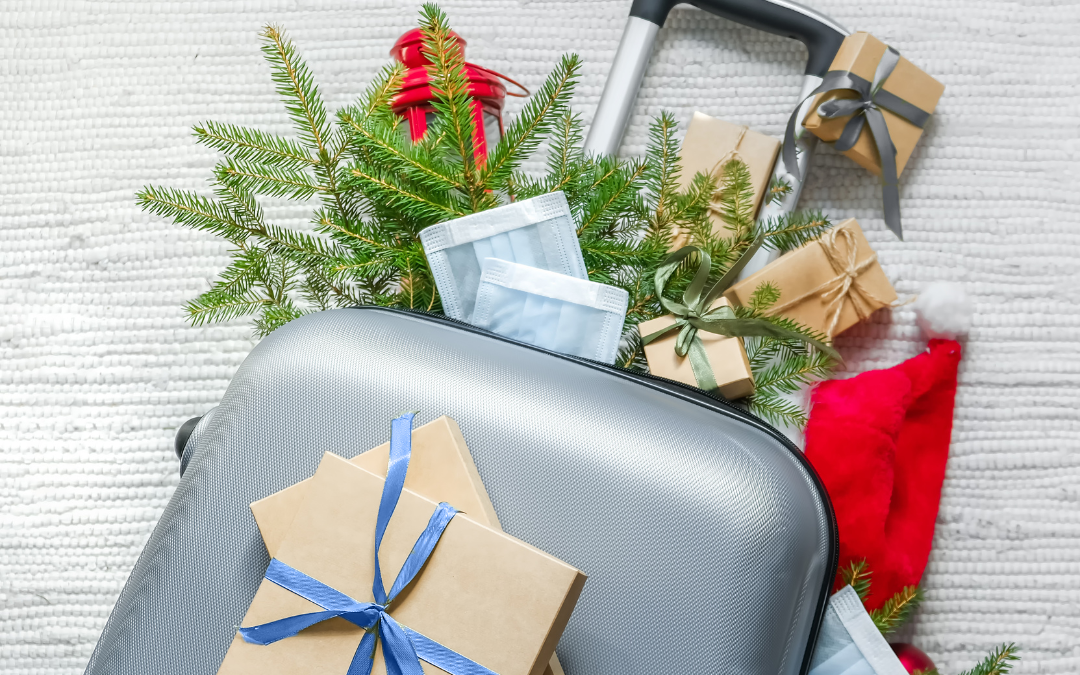The holiday season is a time for family, fun, and celebration. However, if you or a loved one have food allergies or asthma, navigating holiday travel can come with its own set of challenges. Between holiday parties, family gatherings, and travel logistics, it’s important to stay vigilant and prepared to ensure your health and safety are a priority. Here are some key tips on how to travel safely during the holidays while managing food allergies and asthma.
1. Plan Ahead for Travel and Accommodations
When traveling for the holidays, whether by plane, train, or car, it’s essential to plan ahead. Contact your airline, hotel, or rental service ahead of time to discuss any food or allergy accommodations you may need. Most airlines offer special meals or allow you to bring your own food onboard. If you have asthma, inform the airline about your condition so they can be prepared with emergency medication or assistance if necessary.
For hotel stays, be sure to check if the rooms are allergy-friendly. Many hotels now offer rooms with hypoallergenic bedding, and some even have air purifiers available upon request. It’s also a good idea to pack your own pillowcase and sheets in case you’re sensitive to hotel laundry products or dust mites.
2. Pack an Allergy and Asthma Travel Kit
When you’re traveling, it’s crucial to be prepared for any allergic or asthma-related reactions. Make a list of the necessary items and ensure that you have enough medication to last the duration of your trip.
Here’s what your kit should include:
For Food Allergies:
- Epinephrine auto-injectors (EpiPens or similar) – Always have two on hand in case one malfunctions or is lost.
- Oral antihistamines (e.g., Benadryl) for mild reactions.
- Allergy-friendly snacks and meals – Pack foods that you know are safe for you in case there are limited options available.
- A list of your allergens – Write them down and keep a copy with you at all times.
- An allergy alert bracelet or necklace – This will help others recognize your food allergies in case of an emergency.
For Asthma:
- Inhalers (rescue and maintenance) – Ensure you have both, and that they are in working condition.
- Spacer – A spacer makes it easier to use an inhaler effectively.
- Nebulizer (if needed) – Some individuals with asthma require nebulizer treatments, so be sure to pack all the necessary supplies.
- A copy of your prescription – In case you need to refill your medication or get a replacement.
- A peak flow meter – This tool helps monitor your lung function and detect early warning signs of an asthma flare-up.
Keep your medications in your carry-on bag or easily accessible, as checked luggage may get lost or delayed. If you’re traveling internationally, make sure to check if your medications are allowed in the destination country and if any special documentation is required.
3. Be Proactive with Food at Family Gatherings
Food allergies can be particularly tricky during the holidays because many celebrations center around large meals with a variety of dishes. If you’re attending a family gathering or a holiday dinner, communicate your food allergies with the host well in advance. This allows them to plan accordingly, prepare allergy-safe dishes, or even make adjustments to the menu.
When you arrive at the event, don’t hesitate to ask about the ingredients in the food. It’s better to ask and be safe than take the risk. You may also want to bring your own dishes, especially if you are concerned about cross-contamination. Make sure to bring snacks and meals that are safe for you to eat, just in case the options available are not suitable for your dietary restrictions.
Consider these strategies to stay safe around food:
Buffets and Potlucks: When attending large events, avoid buffets or potluck-style meals, as cross-contact is a common issue. If you must attend, bring your own food and ensure that others don’t mix your food with dishes that contain allergens.
Labeling Foods: If you’re the host or contributing a dish to a gathering, label your food with ingredients to help others avoid potential allergens. This is especially helpful if you have food allergies yourself and want to be extra cautious.
Be Prepared to Manage an Allergic Reaction: Despite your best efforts, allergic reactions can still happen. Make sure you know how to recognize the signs of an allergic reaction (hives, swelling, trouble breathing, etc.) and how to respond quickly. Have your EpiPen ready and use it if necessary, and make sure others at the gathering know how to use it as well.
4. Protect Your Health During Travel
Whether you’re traveling by plane, car, or train, it’s important to minimize exposure to asthma triggers. Air travel, in particular, can present a variety of issues, including dry air, confined spaces, and potential exposure to dust or mold. Here’s how to stay safe:
Airlines: The dry air on airplanes can trigger asthma symptoms. Drink plenty of water to stay hydrated and avoid caffeine or alcohol, which can dehydrate you. If you need to use your inhaler during the flight, don’t hesitate to do so.
Hotel Rooms: Hotel rooms may have dust or mold that can trigger asthma symptoms. Ask for a room with an air purifier, or use a portable one if possible. Keep windows closed to prevent outdoor allergens from entering. If you have asthma, avoid using any strong-scented cleaning products, which can irritate your airways.
Cold Weather: Winter weather can be a common asthma trigger. If you’re traveling to a cold destination, be sure to bundle up with scarves, hats, and gloves to help warm the air before it enters your lungs. Take extra precautions when going outside in extreme cold.
Traveling with Asthma: Long trips in cars or buses may expose you to secondhand smoke, exhaust fumes, or other irritants. Keep your medications on hand, and if traveling by car, ask the driver to avoid smoking or unnecessary idling.
5. Know the Emergency Procedures at Your Destination
Before you travel, make sure you know the emergency procedures for your destination. This includes locating the nearest hospital or emergency room and understanding the local language, especially if you’re traveling internationally. Keep emergency numbers saved in your phone, and if necessary, carry a translation card explaining your allergies and asthma symptoms.
If you’re traveling abroad, research any local medical facilities, and inquire about the availability of your medications in the area. Keep an extra copy of your prescriptions in case you need a refill.
6. Be Mindful of the Stress of Holiday Travel
Traveling during the holidays can be stressful, and stress can be a trigger for both asthma and allergic reactions. Give yourself plenty of time to prepare for your travels and avoid rushing. Take breaks during long trips and practice relaxation techniques, such as deep breathing exercises, to help reduce stress and minimize your triggers.
Safe travels!





